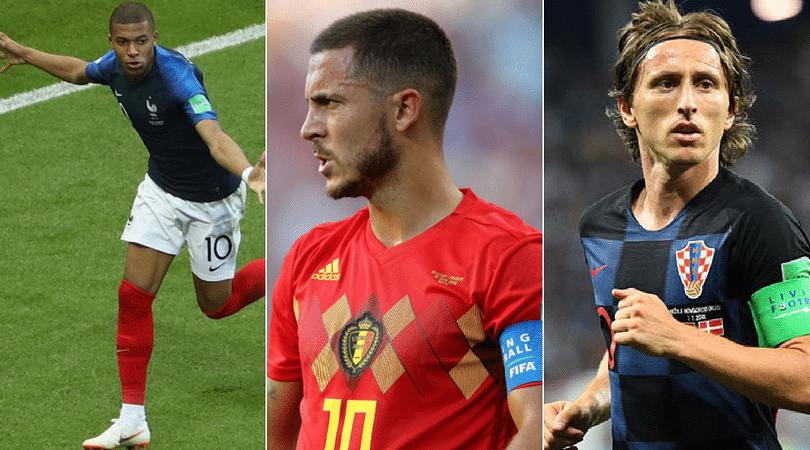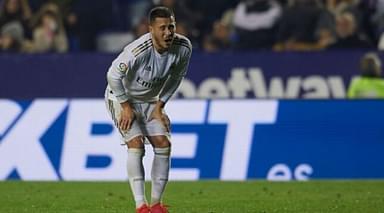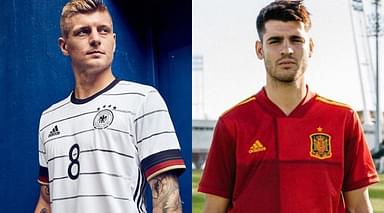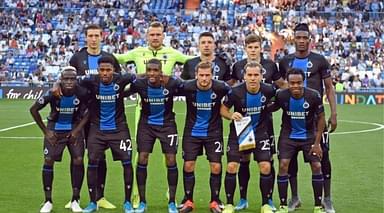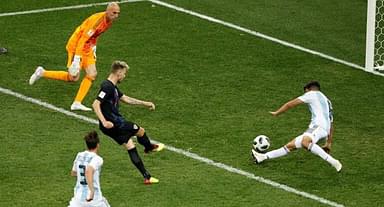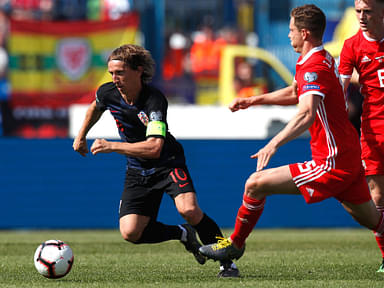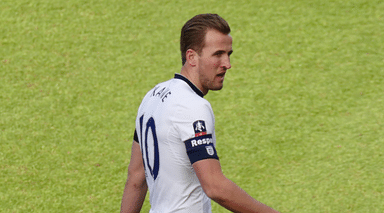The 2018 World Cup has been full of surprises and high quality football, and we can expect more of it as the tournament moves towards business end.
The World Cup semifinals are finally here, and there is a lot in line for all the four teams who qualified for this stage. England defied all the odds as they overcame Colombia and Sweden in the knock-out rounds, and Croatia lived up to their reputation as the dark horses.
Belgium proved that they are no more a team in the transitional phase, and produced many strong performances, as they topped the group and beat Japan and tournament favourites Brazil. Same goes with France, who beat Lionel Messi’s Argentina before defeating Uruguay in emphatic fashion.
While the ‘Three Lions’ will take on Luka Modric and his men, France and Belgium is set to be a true battle of equals, as both take immense pride in their counter-attacking football – a tactic which has been quite prevalent throughout the World Cup.
But how high are their chances of lifting the World Cup trophy?
Belgium:
Belgium current crop of football is deemed their ‘Golden Generation’, and quite rightly so. The team has delivered some excellent performances throughout the World Cup, and much of its credit goes to their attacking trio of Kevin de Bruyne, Eden Hazard and Romelu Lukaku. The trio is central to Belgium’s high-quality attack, which takes the opposition by shock at times.
Their 3-2 defeat of Japan is an excellent example of the same, when Japan continued to attack heavily on their defence in the final minutes. While Thibaut Courtois caught the ball off a corner, he immediately passed it on to de Bruyne, who was at the perfect place to receive the pass. The rest of the attack synchronised immediately as the European team won in the final second of the match.
Belgium’s counter-attacking play is second to none, and they have almost redefined the way football can be played in this World Cup. Before this, World Cup was highly dominated by teams playing possession-based football. Spain won in 2010, while Argentina qualified for the final in 2014. Both the teams were knocked out in the round-of-16.
Belgium didn’t enjoy much success in international tournaments, and this comes as a major shot to create history for the side.
France
Les Bleus may have started the tournament slowly, but they gradually proved that France are worthy contenders for the World Cup. Like Belgium, France also relies on its counter-attacking football the most, as we have seen in all the games in the tournament.
The real threat from their attack comes when Kylian Mbappe and Antoine Griezmann lead their counter-attack with fiery speed on the opposition, as we saw in the game against Argentina. France also boasts of two brilliant midfielders in Paul Pogba and N’Golo Kante, with the latter being second-to-none in retrieving possession.
Pogba prides in his abilities to create space and long balls towards the forwards, which could create problems for the Belgian defence which has been rather scratchy in the air.
As France and Belgium meet in the semifinal of the World Cup, many term it as the ‘Match of the World Cup’ because of the similarities in game-play between both the sides. However, it should be stressed that pace will ultimately define the winner of the match between them.
England
‘The Three Lions’ surprised everyone throughout their run in the World Cup, though many argue that they had an easy draw. Having said that, Spain had a comparatively easy team against Russia, but couldn’t sustain the pressure and lost in the round-of-16. Same goes with Germany who couldn’t win their must-win match against South Korea, and finished last in the group stages.
The team selected by Gareth Southgate, for the first time in quite some years of England’s history, was purely based on merit rather than reputations, which helped England’s cause. Southgate’s young English side, captained by much celebrated centre-forward Harry Kane, defied all the odds to reach the semifinal of the World Cup.
England may not have been entirely convincing in their defence, but look threatening when on attack, as they have the pace to beat their opponents. One of their big worry, however, is converting their chances, as we saw quite often in their quarterfinal against Sweden. Raheem Sterling’s form is another concern for the England side.
Harry Kane’s men also broke the penalty-curse in their round-of-16 match against Colombia, where their performance was dominating. They may have been pushed to backfoot in the final ten minutes which led to Colombia scoring in injury time, but England came back stronger with continual attacks on the South American defence throughout the extra time.
When England landed in Russia, there were hardly any expectations from the side, even from the British media. However, as the tournament reaches its business end, England would feel disappointed if Harry Kane doesn’t lift the World Cup trophy.
Croatia
Croatia’s performance in the World Cup has been exemplary, to say the least. It doesn’t come as a surprise that they start as favourites when they meet England in the semifinal on July 11.
Croatia have two excellent ball-playing midfielders in Luka Modric and Ivan Rakitic, who are central to their quality possession-based game play throughout the World Cup. They are easily superior to England in terms of their passing, and their captain Modric is as versatile as he is technically solid. Modric can play as a 10, as a 8, and even perform defensive duties in a two-man midfield alongside Ivan Rakitic.
Croatia’s success, is again, thanks to the presence of arguably the best midfielder in the world at the moment, Luka Modric. The Croatian plays best as a playmaker, and efficiently performed his duties against Russia, where he created spaces at regular intervals from the right.
In terms of the nation’s history in football, Croatia is far from any success in international tournaments. The European nation even failed to qualify for the tournament in 2010, and finished 3rd in their group in 2014. In the 2016 Euros, Croatia’s campaign ended in round-of-16, to eventual champions, Portugal.

